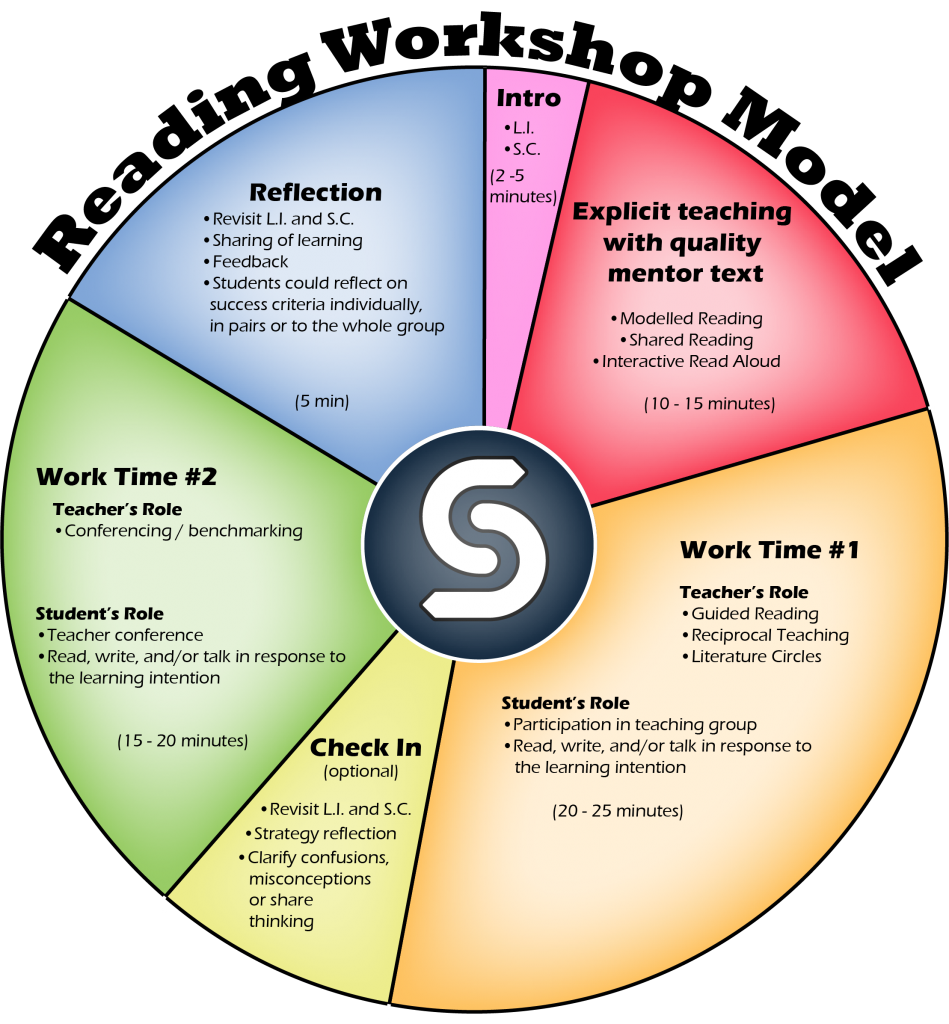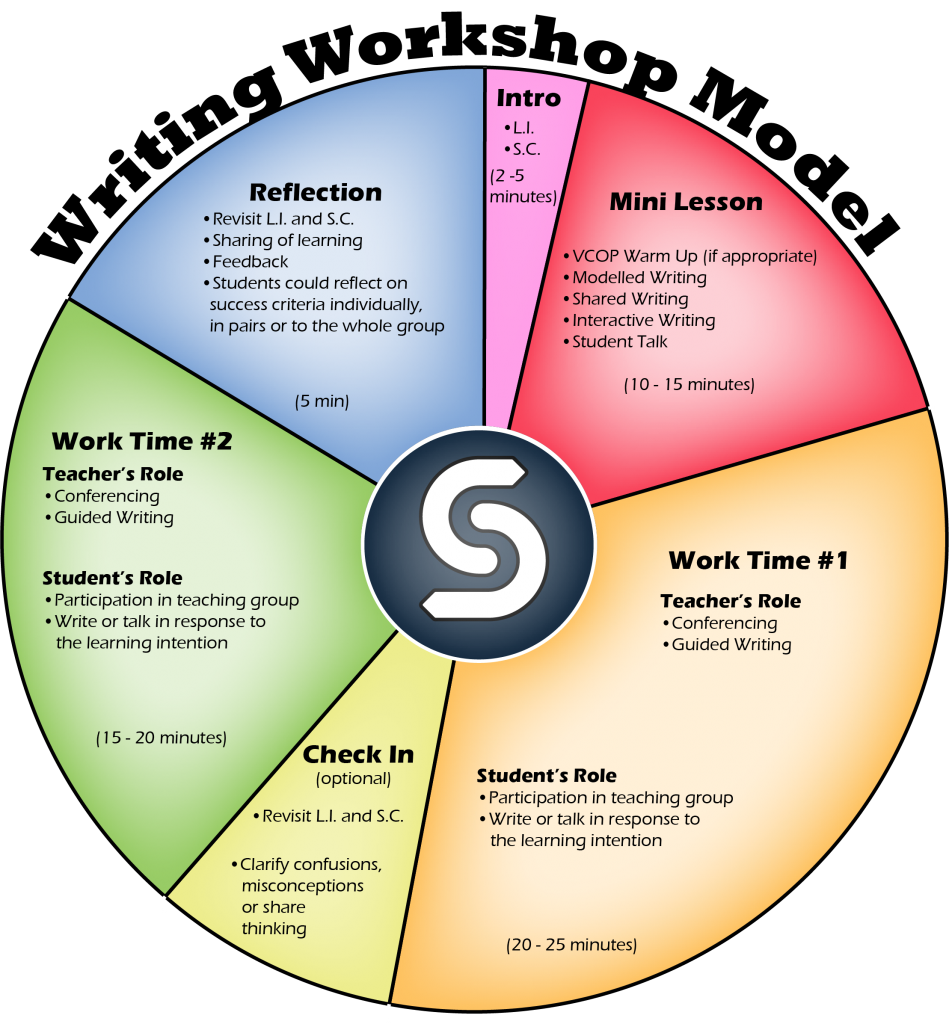Literacy
We have implemented a whole-school approach to the teaching of literacy at Strathfieldsaye Primary School. This means that we have adopted well-researched methods for teaching literacy, and we implement these programs consistently across all year levels at our school. Spelling, thinking, grammar, comprehension, handwriting, speaking and listening skills are explicitly taught in order to prepare our students to participate effectively in the broader community.
A typical literacy session begins with a whole class focus and shared activity, often including the teacher modelling reading and writing skills to the students. Following this, students work individually or in small groups where they focus on practising and consolidating their own skills. Lessons conclude with a sharing of the students’ learning.
We utilise a number of teaching strategies, frameworks and resources to engage our students in literacy; including:
- Reading Workshop
- InitiaLit
- Writing Workshop
- 6 + 1 Traits of Writing
- Smart Spelling
Reading and Viewing
Literacy instruction at Strathfieldsaye Primary School is now based on the Science of Reading (SOR). Science of Reading refers to the body of knowledge and research that has been conducted over many years on how students learn to read and the types of instruction that work the best for most students.
Click here for a 3 minute explanation of the Science of Reading
Our program promotes development in key areas of reading and viewing, writing, speaking and listening as outlined in the Victorian Curriculum. Literacy skills are taught daily and during this time students are exposed to a wide range of knowledge rich texts and vocabulary.
As explained by the Simple View of Reading, learning to read requires two overarching abilities – correctly identifying words (decoding) and understanding their meaning (comprehension). Acquisition of these two broad abilities requires the development of more specific skills.

An extensive body of research on reading instruction shows that there are five essential skills for reading and that a high quality literacy program should include all five components. These five components need to be explicitly taught, in addition to providing a strong foundation in oral language and a knowledge– rich curriculum.
Five essential skills for reading:
- Phonemic Awareness: The ability to identify and manipulate the distinct individual sounds in spoken words
- Phonics: The ability to decode words using knowledge of letter-sound relationships
- Fluency: Reading with accuracy, speed and expression.
- Vocabulary: Knowing the meaning of a wide variety of words and the structure of written language
- Comprehension: Understanding the meaning and intent of the text
Foundation – Year 2
InitiaLit is used in the early years to systematically and explicitly teach the basic alphabetic code. It incorporates the key components necessary for early reading instruction, and evolves through the years to provide an explicit and effective model for teaching reading, spelling and rich language instruction using children’s literature.
InitiaLit F
Implemented across four terms, InitiaLit–Foundation (InitiaLit–F) offers an explicit and effective model for teaching reading and related skills to children in their first year of school in a fun and engaging way.
InitiaLit–F focuses on two main components:
- Phonics, to systematically and explicitly teach the basic alphabetic code in a set sequence. In addition to learning letter-sound correspondences and how these are applied to reading and spelling, children will be introduced to common morphemes and simple grammatical concepts.
- Vocabulary, oral language and listening comprehension through quality children’s literature. Detailed lessons, including writing tasks, are provided for each of the storybook titles selected for use with the program.
InitiaLit-1
InitiaLit–1 continues on from InitiaLit–Foundation in providing an explicit and effective model for teaching reading, spelling and related skills to children in their second year of school. As in InitiaLit–F, InitiaLit–1 focuses on the two main components of:
- Phonics, to systematically and explicitly teach the basic and advanced alphabetic code in a set sequence. In addition to learning letter-sound correspondences and how these are applied to reading and spelling, children will be introduced to common morphemes and simple grammatical concepts.
- Vocabulary, oral language and listening comprehension through quality children’s literature.
InitiaLit-2
By Year 2, most children will be well on their way to reading independence. The program builds on the skills taught in InitiaLit–F and InitiaLit–1, with the focus shifting now to consolidating children’s reading and spelling skills, working specifically on reading comprehension, fluency, spelling and vocabulary.
InitiaLit–2 has four main components:
- Spelling. This component reviews phoneme-grapheme correspondences and spelling concepts taught in InitiaLit–1 and teaches the remainder of the advanced alphabetic code systematically and explicitly. Children will also learn new spelling rules and morphological concepts.
- Reading comprehension and fluency. In this component, children will be taught comprehension strategies explicitly and how to apply them to different types of text.
- Grammar. Children will be explicitly taught key grammatical features and how to apply them to a writing task.
- Vocabulary, oral language and comprehension through children’s literature.
Years 3 – 6
From Year 3 to Year 6, we focus on the four components of successful reading: Comprehension, Accuracy, Fluency and Expanding Vocabulary.
During independent work time, students may take part in literature circles (book club), reciprocal or guided reading sessions with a teacher, independent reading or complete activities linked to the learning intention for that week or day, all based on learning outcomes from the Victorian Curriculum.
Teachers and students work together to set goals and to build reading stamina, foster independence and develop a love of reading.

Reading Intervention
At Strathfieldsaye Primary School, we use MultiLit’s intervention programs, MiniLit and MacqLit, to improve the literacy skills of ‘at-risk’ readers.
MiniLit is an evidence-based, explicit and effective early literacy intervention program for teaching reading skills to children who are in the bottom 25% of the expected range for their age group in Year 1 or 2. Students focus on learning the basics of letter/sound knowledge, decoding skills for Consonant, Vowel, Consonant (CVC) words and word attack knowledge of commonly used digraphs.
MacqLit is for older low-progress readers that need to develop rapid, automatic and efficient word recognition strategies. The primary focus of MacqLit is on phonics, or word identification, supported by connected text reading to ensure skills are generalised to authentic reading experiences.
Spelling
While our F-2 classrooms use a synthetic phonics approach to systematically and explicitly teach children the basic alphabet code in a set sequence, our Grades 3-6 classrooms follow the SMART Spelling approach.
There is a clear Grade 3– 6 scope and sequence that is well established at Strathfieldsaye Primary School. In a SMART Spelling classroom, students are explicitly taught spelling patterns, one at a time. Teachers use their strong professional knowledge to give meaningful feedback to students about their spelling in writing, teaching at the point of need.
Writing
We encourage our students to become fluent and expressive writers by exploring a diverse range of text types and purposes for writing. Across the school, we incorporate ‘The 6+1 Traits of Writing’ to teach the most important qualities of good writing – Organisation, Ideas, Voice, Word Choice, Sentence Fluency, Conventions and Presentation.
Ideas
Ideas are the heart of the message, the content of the piece, the main theme, together with the details that enrich and develop that theme. It includes being able to find a topic, focus the topic, develop the topic and use details to support the content.

Organisation
Organisation is the logical structure and pattern of ideas within a piece of writing. It refers to the order of ideas and the way the writer moves from one idea to the next.

Voice
Voice is the ‘soul’ of the piece and what makes the writer’s style distinctive. It is the expression of the writer’s personality through words.

Word Choice
Word choice involves the use of rich, colourful and precise language. Authors will make particular choices of vocabulary to suit their purpose/genre.

Sentence Fluency
Sentence fluency is the rhythm and flow of language, the sound of word patterns, the way the writing plays to the ear – not just the eye. It includes sentences which vary in length, beginnings, structure and style.

Conventions
The Conventions trait is the mechanical correctness of the piece and includes five elements: spelling, punctuation, capitalisation, grammar/usage and paragraphing.

Presentation
This is the ‘+1’ trait which simply refers to the fact it was introduced after the first 6 were identified. Presentation combines both visual and textual elements. It is the way we exhibit or present our message on paper. It includes balance of white space with visuals and text, graphics, neatness, handwriting, font selection, borders and overall appearance.


